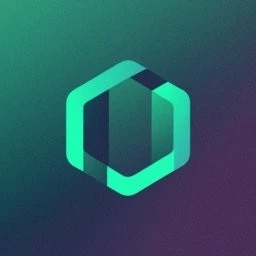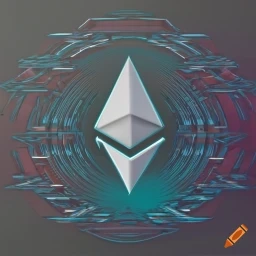
This website uses cookies
We use Cookies to ensure better performance, recognize your repeat visits and preferences, as well as to measure the effectiveness of campaigns and analyze traffic. For these reasons, we may share your site usage data with our analytics partners. Please, view our Cookie Policy to learn more about Cookies. By clicking «Allow all cookies», you consent to the use of ALL Cookies unless you disable them at any time.
Introduction
In the ever-evolving landscape of blockchain technology, various networks are constantly vying for supremacy. Among them, Ethereum has long been a dominant player, renowned for its pioneering smart contract capabilities and a robust developer community. However, as the industry progresses, new contenders have emerged, offering enhanced features and improved functionalities. One such network that has been making waves in the blockchain space is Polygon. In this article, we will delve deep into a comparative analysis between Ethereum and Polygon, highlighting the superior attributes of the latter.
Scalability and Transaction Speed
Ethereum's Current Limitations
Ethereum, despite being a frontrunner in the blockchain space, faces significant scalability issues. The network can process only a limited number of transactions per second, leading to congestion and delayed transaction confirmations. Moreover, the Proof-of-Work (PoW) consensus mechanism employed by Ethereum is energy-intensive, which has raised environmental concerns.
How Polygon Addresses Scalability Issues
Polygon, on the other hand, has successfully tackled the scalability issue by implementing a Layer 2 scaling solution. It utilizes a Proof-of-Stake (PoS) consensus mechanism, which not only reduces energy consumption but also facilitates faster transaction confirmations. Furthermore, Polygon employs sidechains that work in harmony with the Ethereum network, allowing for a higher throughput of transactions.
Real-world Applications and Case Studies Demonstrating Polygon's Superior Transaction Speed
Several real-world applications have already migrated to Polygon to leverage its superior transaction speed. Notable decentralized applications (dApps) and decentralized finance (DeFi) platforms have reported smoother operations and enhanced user experiences since transitioning to Polygon. Case studies from prominent projects can further illustrate the tangible benefits of Polygon's scalability solutions.
 Ethereum's MEV Challenge: Navigating the Complex Landscape of Decentralization and Profit Maximization
Read
Ethereum's MEV Challenge: Navigating the Complex Landscape of Decentralization and Profit Maximization
Read
Transaction Fees
The High Cost of Transactions on Ethereum
Ethereum's network congestion has led to skyrocketing transaction fees, also known as gas fees. These high costs have become a significant barrier for developers and users, especially those involved in microtransactions.
Polygon's Low-Cost Alternative
Polygon offers a low-cost alternative by significantly reducing transaction fees. This has been achieved through its optimized Layer 2 solutions, which minimize the computational resources required to process transactions, thereby lowering the associated costs.
A Comparative Analysis of Transaction Fees
A detailed comparative analysis would reveal that users can save a substantial amount on transaction fees when operating on the Polygon network. This cost-effectiveness makes Polygon an attractive option for both developers and end-users.
Developer-Friendly Environment
The Developer Ecosystem on Ethereum
Ethereum boasts a rich developer ecosystem, with a plethora of tools and resources available. However, the high costs and scalability issues have been deterrents for new developers entering the space.
Polygon's Tools and Resources for Developers
Polygon offers a developer-friendly environment with a range of tools and resources that facilitate easy development and deployment of dApps. Its compatibility with the Ethereum network means that developers can seamlessly migrate their projects to Polygon without significant alterations.
Case Studies of Successful Projects Developed on Polygon
Several successful projects have been developed on the Polygon network, showcasing its potential as a fertile ground for innovation. These case studies can serve as testimonials to Polygon's conducive developer environment.
Security and Consensus Mechanisms
Ethereum's Security Infrastructure
Ethereum's security infrastructure is robust, backed by a vast network of miners. However, the PoW consensus mechanism is susceptible to potential 51% attacks and is criticized for its environmental impact.
How Polygon Ensures a Secure Network
Polygon ensures network security through its PoS consensus mechanism, which is not only energy-efficient but also resilient to potential attacks. Moreover, Polygon employs Plasma Chains and PoA (Proof of Authority) sidechains, which further bolster network security.
A Comparative Analysis of Consensus Mechanisms
A comparative analysis of the consensus mechanisms employed by both networks would reveal that Polygon's approach is more sustainable and secure, aligning with the current trends and demands of the blockchain industry.
Community and Ecosystem
The Ethereum Community
The Ethereum community is vast and diverse, comprising developers, users, and enthusiasts from around the world. It has played a pivotal role in fostering innovation and growth in the blockchain space.
Polygon's Growing Community and Ecosystem
Polygon's community is rapidly growing, with an increasing number of developers and users gravitating towards its network. Its ecosystem is vibrant and inclusive, fostering collaboration and innovation.
Collaborations and Partnerships: How Polygon is Expanding its Network
Polygon has been actively expanding its network through collaborations and partnerships with various industry players. These alliances have further strengthened Polygon's position as a formidable competitor in the blockchain space.
Conclusion
In conclusion, while Ethereum has played a pivotal role in the growth and development of the blockchain industry, it is evident that Polygon offers a superior alternative in terms of scalability, transaction fees, and developer resources. As we venture further into the digital future, it is networks like Polygon that are poised to lead the way, offering innovative solutions and fostering a vibrant and inclusive community.



